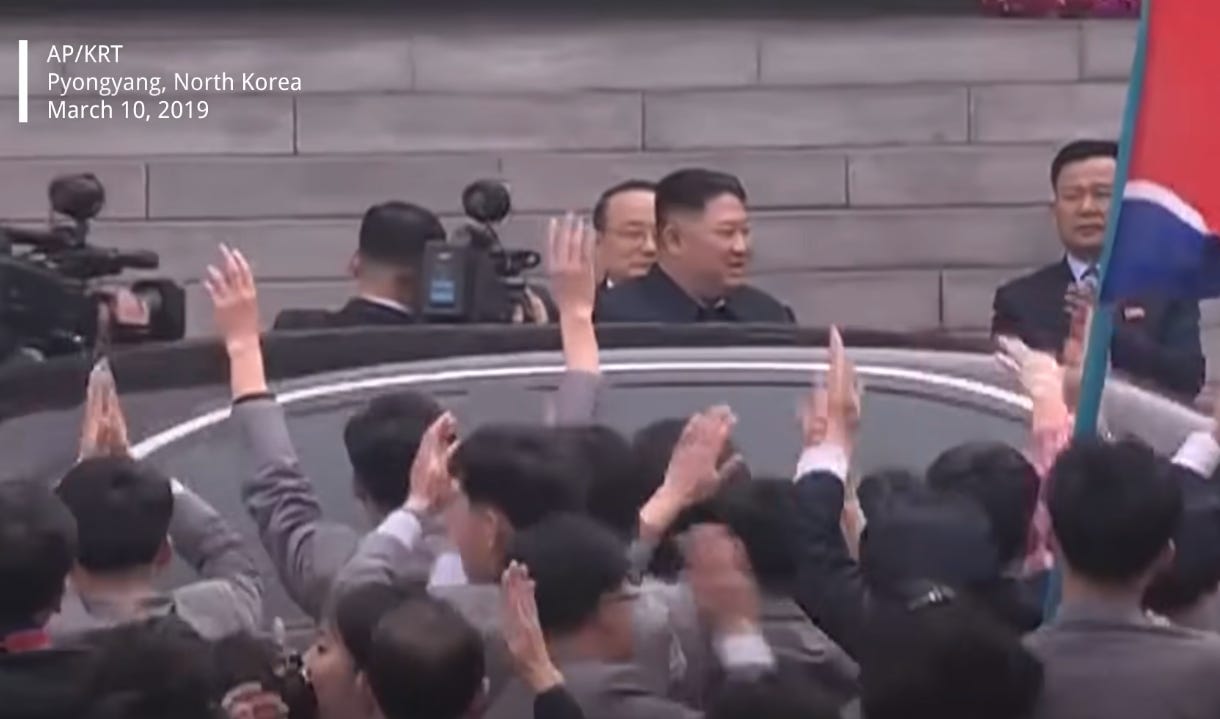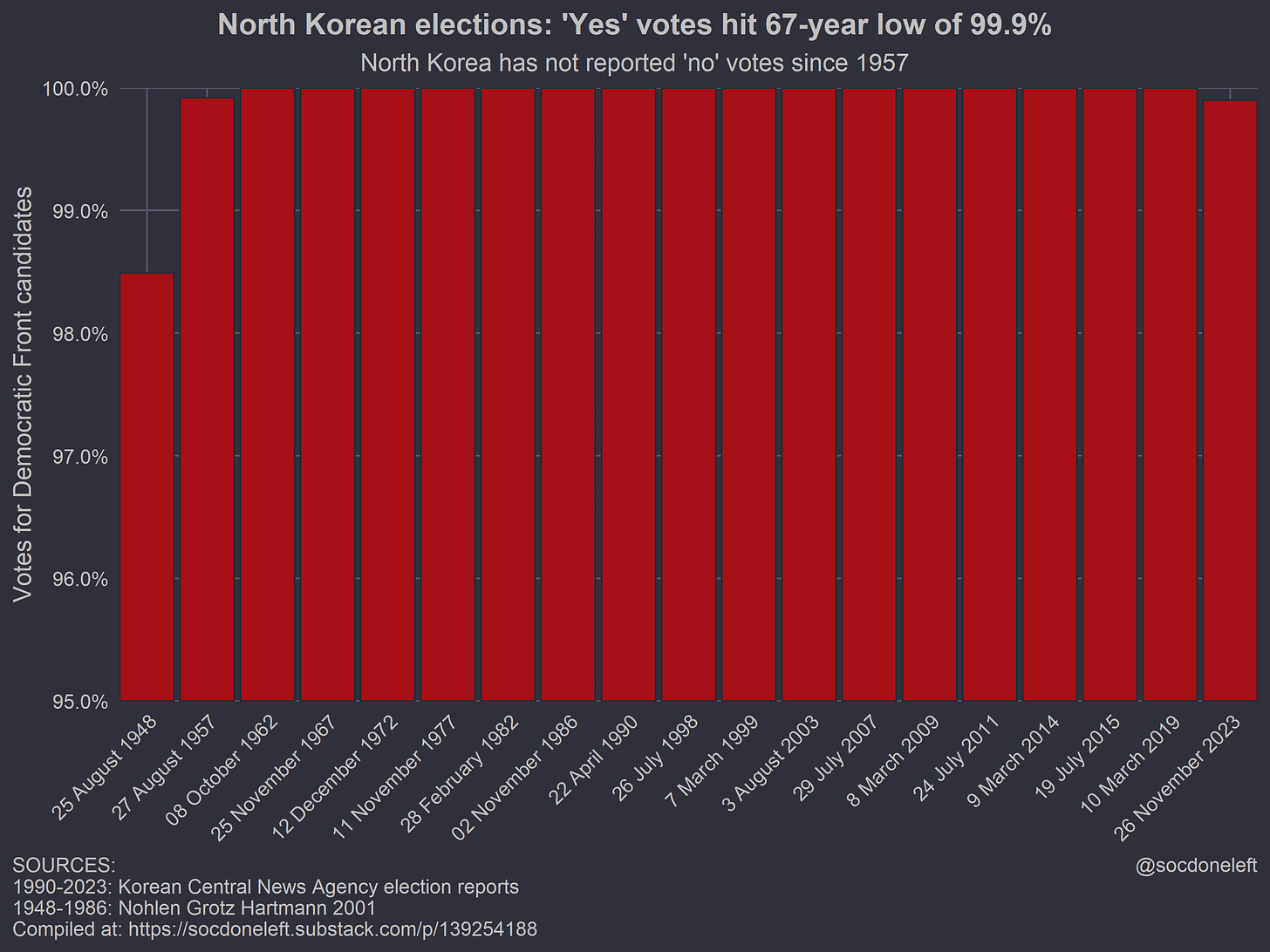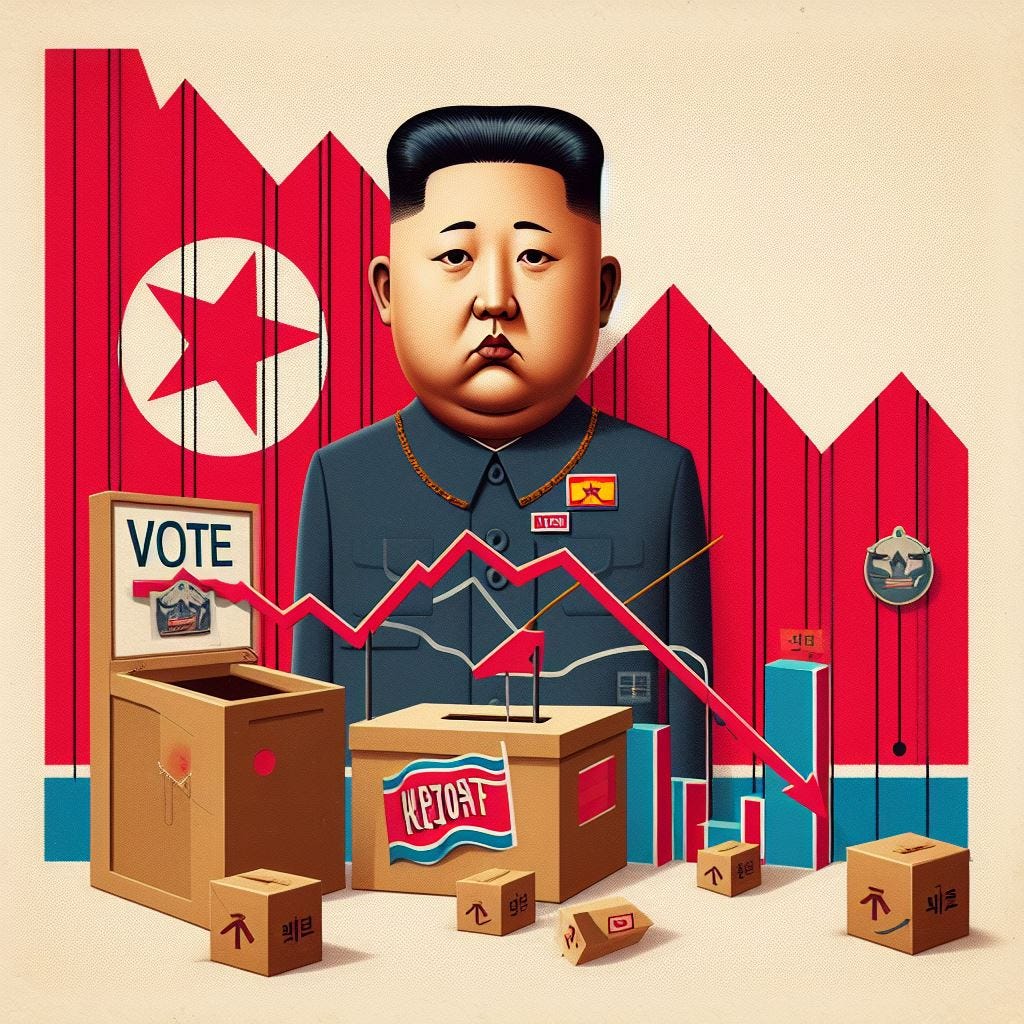Kim Jong Un wins just 99.9% of vote
Is it Joever for Kim, who led his coalition to its worst electoral performance in six decades?
North Korea held local elections all across the country this Sunday. They were mostly uninteresting.
As usual, cheering crowds greeted Kim Jong Un when he came to cast his ballot, though he hasn’t run for office since 2014. As usual, every district in North Korea’s fake democracy had just one candidate, pre-selected by the ruling coalition, with no real popular dissent or choice. As usual, 99% of voters turned out. As usual, every candidate won.
However, this year held one unusual detail: For the first time in six decades, North Korea officially reported the percent of voters who voted “no”.
On November 28, KCNA reported the election results (bolded):
Among the voters who took part in the ballot-casting, 99.91 percent voted for the candidates for deputies to provincial (municipal) people’s assemblies and 0.09 percent voted against. 99.87 percent voted for candidates for deputies to city (district) and county people’s assemblies and 0.13 percent voted against.
Given that 63% of North Korean residents live in cities, these results imply that about 0.10% of North Korean voters chose “no” and rejected their single candidate.
Why is this unusual? North Korea usually either explicitly reports 100% approval (as in the 2019 national elections) or doesn’t report on approval whatsoever (as in the 2019 local elections). In fact, North Korea last reported the proportion of “reject” voters in 1957, 67 years ago.
Of course, this rate is absurdly, impossibly low. Anyone who claims that their candidates won 99.9% of voters is lying to you. North Korea claims that because North Korea has a fake democracy. Elections without choice are no elections at all.
Summary and shilling
In short, Kim Jong Un faces his lowest approval rating ever. With support from just 99.9% of North Koreans, has Kim lost his bipartisan mandate?
I write blogs on socialist and progressive topics. To support my work:
Subscribe on Substack:






